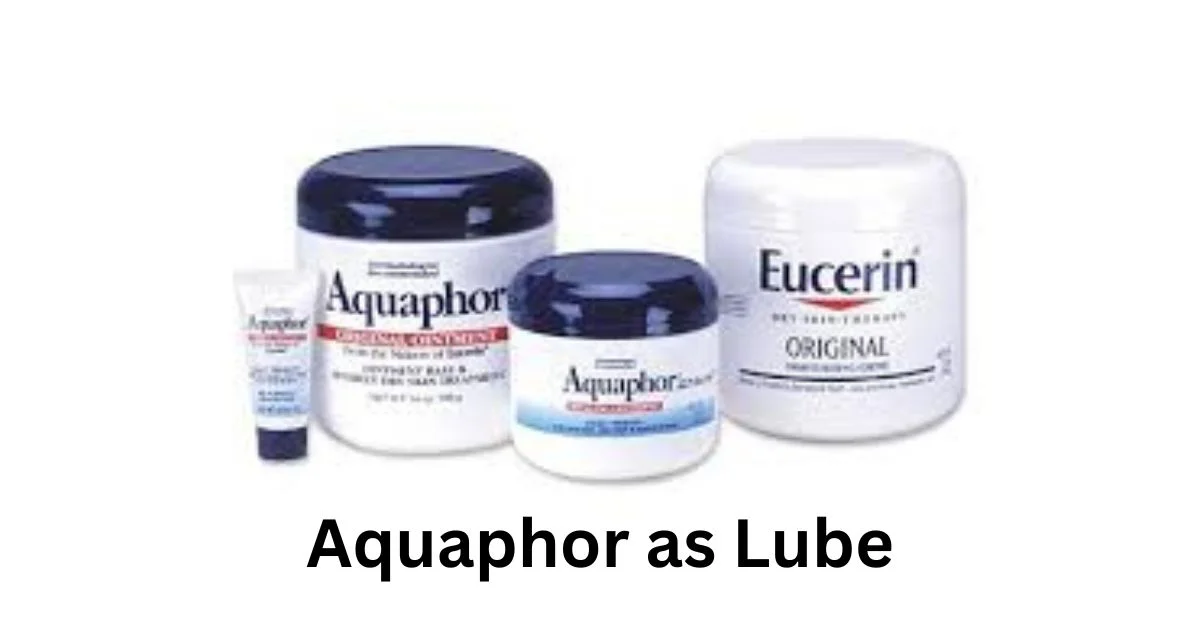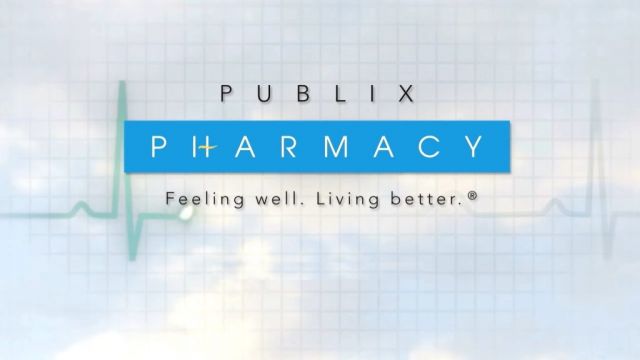Health
Finding the Best Hematologists Near Me: A Comprehensive Guide

Introduction to Hematology
Are you in search of the best hematologists near you? Look no further! Whether you’ve been diagnosed with a blood disorder or simply need routine check-ups, finding the right and best hematologist near me is crucial for your health and well-being. Hematology, the study of blood and its disorders, requires specialized expertise and personalized care. In this comprehensive guide, we’ll walk you through all the essential factors to consider when searching for a hematologist near you. From using online directories to evaluating costs and affordability, we’ve got you covered every step of the way. So let’s dive in and discover how to find the perfect hematologist who meets all your needs!
Importance of Choosing the Right Hematologist
When it comes to your health, choosing the right hematologist is crucial. Hematology is a specialized field that focuses on the diagnosis and treatment of blood disorders. Whether you are dealing with anemia, leukemia, or other blood-related conditions, finding a knowledgeable and experienced hematologist can make all the difference in your treatment journey.
The expertise of a hematologist cannot be underestimated. They have extensive training and experience in managing complex blood disorders and providing personalized care tailored to each patient’s unique needs. From accurate diagnosis to developing an effective treatment plan, a skilled hematologist plays a vital role in ensuring positive outcomes for their patients. So when searching for a hematologist near you, take the time to consider their qualifications and expertise before making your decision. Your health deserves nothing less than the best!
Factors to Consider When Searching for a Hematologist Near Me
When searching for a hematologist near you, there are several important factors to consider. First and foremost, it’s crucial to find a hematologist who specializes in your specific condition or needs. Hematology is a vast field, encompassing various blood disorders and diseases, so finding a specialist with expertise in your particular area of concern can greatly enhance the quality of care you receive.
Another factor to consider is the location and accessibility of the hematologist’s clinic. Choosing a hematologist who is conveniently located can make regular appointments more manageable, especially if you require ongoing treatment or monitoring. Additionally, considering their availability and scheduling options is essential to ensure that you can easily book appointments when needed.
By carefully evaluating these factors along with others like insurance acceptance, costs, credentials, and referrals from trusted sources, you can confidently navigate through the process of finding the best hematologist near you. Remember that everyone’s needs are unique, so take your time in researching and selecting a hematologist who aligns with your requirements for personalized care and expertise!
Using Online Directories to Find Hematology Specialists
When it comes to finding the best hematologists near you, utilizing online directories can be a game-changer. These directories provide a wealth of information about hematology specialists in your area, making it easier than ever to narrow down your options.
With just a few clicks, you can access comprehensive lists of hematologists and their contact details. Many online directories even offer additional features such as patient reviews and ratings, allowing you to gain insights into the experiences of others who have sought care from these specialists. With this valuable information at your fingertips, you can make more informed decisions about which hematologist is right for you.
Whether you’re searching on popular medical websites or specialized directory platforms that focus solely on healthcare providers, using online directories takes the guesswork out of finding reputable hematologists near you. So take advantage of these digital resources and begin your search with confidence!
Assessing Hematologist Ratings and Reviews
When it comes to finding the best hematologist near you, one of the key factors to consider is their ratings and reviews. Assessing these can give you valuable insights into the experiences of other patients and help you make an informed decision.
Start by checking online directories or healthcare websites that provide a platform for patients to rate and review hematologists. Look for consistent positive feedback as well as any concerns or negative comments. Keep in mind that everyone’s experience may vary, so don’t solely rely on a single review. Take note of how many reviews are available for each hematologist, as this can also be an indicator of their reputation.
Additionally, take some time to read through individual testimonials if available. Pay attention to specific details mentioned by previous patients such as communication style, bedside manner, and overall satisfaction with treatment outcomes. While ratings and reviews should not be your sole determining factor when choosing a hematologist, they can certainly provide helpful guidance during your search process
Understanding Hematologist’s Experience and Specializations
When it comes to finding the best hematologist near you, one crucial aspect to consider is their experience and specializations. Hematology is a specialized field within medicine that focuses on disorders of the blood and related tissues. An experienced hematologist will have extensive knowledge and expertise in diagnosing and treating various blood disorders, including anemia, clotting disorders, leukemia, lymphoma, and more.
Hematologists often undergo years of rigorous training after medical school to gain competence in this complex field. They may specialize further in specific areas such as pediatric hematology or oncology. Understanding a hematologist’s experience allows you to assess their skill level in handling your particular condition or concern. It gives you confidence that they have encountered similar cases before and can provide effective treatment options tailored to your needs.
Additionally, considering a hematologist’s specialization is equally important. Some hematologists may focus primarily on research while others specialize solely in clinical practice. By understanding their area of expertise, you can ensure that the hematologist aligns with your specific requirements for diagnosis or ongoing management of your blood disorder.
Finding a highly experienced and specialized hematologist ensures that you receive optimal care for your condition while benefiting from the latest advancements in hematology treatments!
Conducting In-Depth Research on Hematologists
When it comes to finding the best hematologist near you, conducting in-depth research is crucial. This step allows you to gather all the necessary information about potential hematologists and make an informed decision for your healthcare needs.
Start by exploring their backgrounds, education, and training. Look for board-certified hematologists who have completed specialized fellowship programs. This ensures that they have the knowledge and expertise to diagnose and treat various blood disorders effectively.
Next, delve into their experience. Consider how long they have been practicing hematology and whether they specialize in specific areas such as leukemia or sickle cell disease. Understanding their specialization can help determine if they are a good fit for your particular condition.
Additionally, take the time to read patient reviews and testimonials. These provide valuable insights into other patients’ experiences with a particular hematologist. Look for positive feedback regarding communication skills, bedside manner, and overall satisfaction with treatment outcomes.
By conducting thorough research on hematologists near you, you can confidently choose a specialist who meets your unique medical needs while ensuring high-quality care. Remember that this step is essential in finding the best possible match for your hematology journey!
Hematology Services Offered and Accepted Insurance Plans
When searching for a hematologist near me, it’s essential to consider the range of services they offer and whether they accept your insurance plan. Hematology involves the diagnosis and treatment of blood disorders, so understanding what specific services are available is crucial. Some common hematology services include blood transfusions, bone marrow biopsies, chemotherapy treatments for blood cancers, and genetic testing for inherited blood disorders.
In addition to knowing which services are provided, it’s important to find a hematologist who accepts your insurance plan. Medical expenses can quickly add up, especially when dealing with ongoing conditions like blood disorders. By choosing a hematologist who is in-network with your insurance provider, you can potentially save money on co-pays or out-of-pocket costs. Before scheduling an appointment with a hematologist near you, be sure to inquire about their accepted insurance plans to ensure that you’ll receive the necessary care without breaking the bank.
Location and Accessibility of Hematology Clinics
When searching for the best hematologist near you, it’s important to consider the location and accessibility of their clinics. It’s no secret that dealing with a blood disorder or condition can be challenging, so finding a clinic that is conveniently located can make a big difference in your overall experience.
Having a hematologist clinic close to your home or workplace means less time spent traveling and more time focusing on your health. Whether you need regular check-ups, ongoing treatments, or emergency care, having easy access to your hematologist ensures that you receive timely and convenient medical attention. Additionally, choosing a clinic in an accessible area can also help ease any transportation concerns for patients who may rely on public transit or require assistance getting to appointments.
Considering the location and accessibility of hematology clinics when searching for the best specialist near you is crucial. By prioritizing convenience and proximity, you’ll ensure that receiving quality care remains as stress-free as possible during what could already be a challenging time in terms of managing your blood disorder or condition.
Scheduling Appointments with Hematologists
Scheduling Appointments with Hematologists can sometimes feel like a daunting task, but it doesn’t have to be. When looking for the best hematologist near you, it’s important to consider their availability and scheduling options. Many hematologists offer online appointment booking systems that make it easy and convenient to schedule your visit. Whether you prefer phone calls or online forms, finding a hematologist who offers flexible scheduling options can ensure that you get the care you need when it fits into your busy life.
Additionally, keep in mind any specific requirements or preferences you may have when scheduling appointments. Some hematologists may require referrals from primary care physicians or certain diagnostic tests before seeing new patients. It’s always a good idea to check if there are any specific instructions or documents needed prior to your appointment. By being proactive and organized in scheduling your appointments with hematologists, you can streamline the process and focus on getting the best possible care for your hematology needs without unnecessary stress!
Evaluating Costs and Affordability of Hematology Care
When it comes to evaluating the costs and affordability of hematology care, there are several factors you should keep in mind. First and foremost, it’s important to understand that the cost of hematologist visits can vary depending on various factors such as location, clinic reputation, and insurance coverage.
To get a better idea of the potential costs involved, start by contacting different hematologists near you and inquire about their fees for initial consultations, follow-up visits, and any additional tests or treatments they may recommend. Additionally, find out if they accept your insurance plan or offer payment plans for those without coverage. By gathering this information upfront, you can make a more informed decision regarding which hematologist fits within your budget.
Remember that while cost is an important consideration when choosing a hematologist near you, it shouldn’t be the sole determining factor. The quality of care provided is equally crucial in managing your health condition effectively. So take into account both affordability and expertise when making your final decision.
Verifying the Credentials and Certifications of Hematologists
When it comes to choosing a hematologist near you, verifying their credentials and certifications is crucial. You want to ensure that the specialist you select has the necessary qualifications and expertise in the field of hematology. Start by checking if they are board-certified in hematology, which means they have undergone additional training and passed rigorous exams.
It’s also important to verify any other relevant certifications or memberships in professional organizations related to hematology. These affiliations can indicate that the hematologist stays updated on advances in their field and follows best practices. Don’t hesitate to ask about their educational background, residency programs, fellowships, and any publications or research they have been involved with. By taking these steps to verify credentials and certifications, you can feel more confident in your choice of hematologist for your healthcare needs.
Seeking Recommendations and Referrals
When it comes to finding the best hematologist near you, seeking recommendations and referrals can be a valuable strategy. Don’t hesitate to reach out to your primary care physician, friends, or family members who may have had experience with hematologists. They can provide firsthand insights into their experiences and offer suggestions based on their own treatment journeys.
Additionally, consider joining online forums or support groups related to hematology where individuals share their experiences and recommendations. These platforms can connect you with others who have gone through similar situations and help guide your search for a trusted hematologist. Remember, personal recommendations carry weight because they come from people who understand the importance of quality care in managing blood disorders. So don’t underestimate the power of seeking recommendations and referrals when searching for a hematologist near you!
Final Tips for Finding the Best Hematologist Near Me
Now that you have a clearer understanding of what to look for when searching for the best hematologist near you, here are a few final tips to help you make the right choice.
Don’t be afraid to ask questions. When scheduling an appointment or during your initial consultation, take the opportunity to ask about their experience and expertise in treating your specific condition. Inquire about any recent advancements in hematology that they are familiar with, as staying up-to-date on medical research is crucial in providing quality care.
Consider reaching out to patient advocacy groups or support networks for recommendations and referrals. These organizations often have valuable insights into reputable hematologists who specialize in certain conditions. Additionally, speaking with other patients who have had positive experiences can provide reassurance and help guide your decision-making process.
Remember that finding the best hematologist near you may involve some trial and error. It’s important to trust your instincts and prioritize open communication with potential doctors. By considering all these factors together – including ratings and reviews, experience and specializations, insurance acceptance, location accessibility, costs of care – you’ll be well on your way to finding a hematologist who meets all your needs.
Conclusion
Finding the best hematologist near you is crucial for receiving top-quality care for your blood-related conditions. By following the steps outlined in this comprehensive guide, you can make an informed decision and ensure that you are choosing a hematologist who meets your specific needs.
Remember to utilize online directories to find hematologists in your area and assess their ratings and reviews from previous patients. Dig deeper by researching their experience, specializations, and credentials to determine if they have the expertise required for your condition.
Consider factors such as location, accessibility, accepted insurance plans, appointment availability, and affordability when selecting a hematologist. Seek recommendations from trusted healthcare professionals or friends who may have had positive experiences with local hematology specialists.
In conclusion,
Taking the time to carefully evaluate all these aspects will help you find the best hematologist near you who can provide personalized care tailored to your unique circumstances. Don’t settle for anything less than exceptional when it comes to managing your blood health – choose wisely and take control of your well-being today!
Remember: Your health matters!
Fashion
Aquaphor as Lube: What You Need to Know Before Trying It

Introduction
Aquaphor has long been a staple in many households, known for its ability to soothe and protect dry, irritated skin. But a new curiosity has emerged: can this versatile ointment double as an intimate lubricant? This question has sparked interest among those looking for multipurpose products and alternatives to specialized lubricants. In this article, we will explore the feasibility of using Aquaphor as lube, its safety implications, and what you should consider before making this decision.
Understanding Aquaphor
What is Aquaphor?
Aquaphor is an ointment produced by Eucerin, primarily designed to relieve and protect dry, chapped skin. Its formulation includes a blend of petrolatum, mineral oil, and other emollients that create a barrier on the skin, which helps retain moisture and promote healing.
Key Ingredients and Their Functions
- Petrolatum: Acts as an occlusive agent to lock in moisture.
- Mineral Oil: Helps to soften and smooth the skin.
- Glycerin: A humectant that draws moisture from the environment into the skin.
Intended Uses and Benefits
Aquaphor is commonly used to treat conditions such as eczema, psoriasis, and minor burns. Its gentle formulation makes it a popular choice for sensitive skin areas, but it was never intended for use as a lubricant.
The Question: Can Aquaphor Be Used as Lube?
Common Misconceptions
Many people assume that if a product is good for skin, it must be good for all skin-related uses, including lubrication. However, just because Aquaphor is beneficial for skin care doesn’t mean it’s suitable for intimate areas.
Why People Consider Using Aquaphor as Lube
The idea of using Aquaphor as a lubricant likely stems from its smooth texture and moisturizing properties. People looking for alternatives to commercial lubricants might see Aquaphor as a readily available option.
Overview of Popularity and Curiosity
Curiosity about using Aquaphor as lube reflects a broader trend of seeking multipurpose products and exploring non-traditional uses for everyday items.
Safety Considerations
Ingredient Safety for Intimate Areas
Aquaphor’s ingredients are designed for external skin use and might not be suitable for intimate areas. Petrolatum and mineral oil, while safe for skin, may cause irritation or disrupt the natural balance of sensitive areas.
Potential Risks and Reactions
Using Aquaphor as a lubricant may lead to allergic reactions or infections. The product is not formulated to be used internally and might not provide the same safety and comfort as specialized lubricants.
Hygiene and Sterility Concerns
Aquaphor is not a sterile product, and using it in intimate areas could introduce bacteria or pathogens, increasing the risk of infections. Specialized lubricants are designed with sterility and safety in mind.
Comparing Aquaphor with Specialized Lubricants
Water-Based Lubricants
Water-based lubricants are a popular choice due to their compatibility with condoms and sex toys. They are easy to clean up and generally safe for sensitive skin. Look for products without parabens or glycerin for a more natural option.
Silicone-Based Lubricants
Silicone-based lubricants provide long-lasting lubrication and are water-resistant, making them suitable for various activities. However, they may degrade silicone toys and require careful cleaning.
Oil-Based Lubricants
Natural oils like coconut oil can be used for external lubrication but should not be used with latex condoms, as they can weaken the latex. Oil-based lubes are not recommended for internal use.
Pros and Cons of Using Aquaphor as Lube
Benefits
- Moisturizing Properties: Aquaphor’s ability to hydrate the skin might offer some level of lubrication.
- Availability: Easily accessible in many households.
Drawbacks and Limitations
- Potential Irritation: Not designed for intimate areas, may cause irritation.
- Lack of Sterility: Increases risk of infections.
- Texture Issues: May not provide adequate or lasting lubrication.
Alternatives to Aquaphor for Intimate Lubrication
Best Water-Based Lubricants
- K-Y Jelly: A well-known brand for its gentle formulation.
- Sliquid H2O: Offers a natural, glycerin-free option.
Top Silicone-Based Lubricants
- Pjur Original: Long-lasting and suitable for various activities.
- Astroglide X: Provides a smooth, extended glide.
Safe Natural Oils for Lubrication
- Coconut Oil: Hydrating and naturally antimicrobial but not compatible with latex condoms.
- Almond Oil: A mild, moisturizing option but should be used cautiously.
How to Choose the Right Lubricant
Factors to Consider
- Compatibility: Ensure the lubricant works with condoms and sex toys.
- Personal Sensitivities: Choose a product that suits your skin type and preferences.
Matching Lubricants to Needs and Preferences
Consider what type of activities you’ll be engaging in and choose a lubricant that offers the appropriate level of comfort and effectiveness.
Conclusion
While the idea of using Aquaphor as lube may be intriguing, it’s essential to prioritize safety and effectiveness. Aquaphor is not designed for intimate lubrication and may pose risks such as irritation or infection. Opting for specialized lubricants, whether water-based, silicone-based, or natural oils, ensures a safer and more comfortable experience. Always consider your health and well-being when choosing products for intimate use.
FAQs
What are the risks of using Aquaphor as lube?
Using Aquaphor as a lubricant can lead to irritation, allergic reactions, or infections due to its ingredients and lack of sterility.
Can Aquaphor cause infections or irritation?
Yes, Aquaphor may disrupt the natural balance of intimate areas and increase the risk of infections or irritation.
What are the best alternatives to Aquaphor for lubrication?
Water-based, silicone-based, and safe natural oil lubricants are better alternatives, each offering specific benefits and suitability for different needs.
How do water-based lubes compare to silicone-based lubes?
Water-based lubes are easier to clean and safe for most activities, while silicone-based lubes offer longer-lasting lubrication and are water-resistant.
Are natural oils a safe option for lubrication?
Natural oils like coconut oil can be used for external lubrication but should not be used with latex condoms, as they can weaken the latex.
Health
RAD-150: The Ultimate SARM for Strength and Muscle Gains

Introduction
What is RAD-150?
RAD-150, also known as a selective androgen receptor modulator (SARM), has been making waves in the fitness and bodybuilding communities. Unlike traditional anabolic steroids, RAD-150 is designed to selectively bind to androgen receptors in muscle and bone tissues, thereby promoting muscle growth and strength gains without some of the undesirable side effects associated with steroids.
Why RAD-150 Matters
The increasing interest in RAD-150 can be attributed to its unique benefits over other performance enhancers. Athletes and bodybuilders seek RAD-150 for its potential to enhance muscle mass, improve strength, and aid in fat loss while minimizing adverse effects on other body systems.
Understanding SARMs
What Are Selective Androgen Receptor Modulators (SARMs)?
SARMs are a class of compounds that, similar to anabolic steroids, target androgen receptors but with greater specificity. This specificity allows them to offer muscle-building benefits while avoiding some of the broader side effects typically associated with steroids.
How SARMs Work
SARMs like RAD-150 bind selectively to androgen receptors in specific tissues. This selective binding helps in promoting muscle growth and strength without affecting other parts of the body, making them a popular choice for those looking to enhance physical performance.
RAD-150 vs. Other SARMs
Comparing RAD-150 with RAD-140
RAD-150 and RAD-140 (Testolone) are often compared, as both are used to enhance muscle mass and strength. RAD-150 is noted for its improved binding affinity to androgen receptors, potentially offering more significant gains with fewer side effects.
Advantages Over Traditional Steroids
Compared to traditional anabolic steroids, RAD-150 is believed to have a better safety profile. It selectively targets muscle and bone tissue, potentially reducing risks associated with hormonal imbalances and other systemic issues.
Benefits of RAD-150
Enhanced Muscle Growth
RAD-150 is particularly noted for its ability to enhance muscle hypertrophy. Users often report significant gains in muscle size and strength, which makes it a sought-after supplement for bodybuilders and athletes.
Improved Strength and Performance
In addition to muscle growth, RAD-150 is reputed to improve strength and overall physical performance. This makes it beneficial for both athletes looking to gain a competitive edge and bodybuilders aiming for peak performance.
Fat Loss Support
RAD-150 may also aid in fat loss. Its muscle-building effects can boost metabolism, helping users burn more calories and reduce body fat.
Cycling RAD-150
Why Proper Cycling is Important
Cycling refers to the practice of using RA’D-150 in structured phases, alternating between periods of use and non-use. Proper cycling is crucial to maximize gains, maintain the compound’s effectiveness, and minimize potential side effects.
Typical RAD-150 Cycle
A typical RA’D-150 cycle might last 8-12 weeks, followed by a break period. This approach helps in preventing the body from adapting too quickly to the compound, which could diminish its effectiveness.
Post-Cycle Therapy (PCT)
Post-Cycle Therapy (PCT) is an essential component after completing a RA’D-150 cycle. PCT helps in restoring natural hormone levels and maintaining gains achieved during the cycle.
Dosage and Administration
Recommended Dosage
The recommended dosage for RA’D-150 varies depending on individual goals and experience. However, a common dosage range is between 10-20 mg per day. Starting with a lower dose and gradually increasing is often recommended to assess tolerance.
Administration Tips
RA’D-150 is usually administered orally in the form of a liquid or capsule. Consistency in taking the compound, along with proper cycling and dosage, is key to achieving the desired results.
Side Effects and Safety
Potential Side Effects
While RA’D-150 is considered safer than traditional steroids, it can still cause side effects. Common side effects may include changes in hormone levels, potential liver strain, and mood changes. It’s important to monitor these effects and consult with a healthcare provider.
Safety Precautions
To ensure safety while using RAD-150, adhere to recommended dosages, cycle appropriately, and undergo regular health check-ups. Staying informed about potential risks and addressing them promptly is crucial.
Legal and Regulatory Status
Is RA’D-150 Legal?
The legality of RA’D-150 varies by country. In many places, it is classified as a research chemical and is not approved for human consumption. Users should be aware of their local regulations and ensure compliance to avoid legal issues.
Regulations and Compliance
Understanding and adhering to regulations related to SARMs is essential for both legal and health reasons. It’s important to purchase RA’D-150 from reputable sources and to stay updated on regulatory changes.
Expert Insights and Testimonials
What Experts Say
Experts in the field of sports medicine and bodybuilding often discuss the benefits and risks of using SARMs like RA’D-150. Their insights can provide valuable information on how to use the compound effectively and safely.
User Experiences
Many users share their experiences with RA’D-150 in online forums and reviews. These testimonials can offer practical insights into the compound’s effectiveness and potential side effects.
Conclusion
RAD-150 offers significant benefits for muscle growth, strength enhancement, and fat loss. Proper usage and cycling are key to maximizing these benefits while minimizing side effects.
For those considering RAD-150, it’s important to weigh the benefits against potential risks. Consulting with healthcare professionals and adhering to recommended practices can help in achieving optimal results.
FAQs
What is RA’D-150 used for?
RA’D-150 is used to enhance muscle growth, strength, and performance, and may also support fat loss.
How long should a RA’D-150 cycle last?
A typical RA’D-150 cycle lasts between 8-12 weeks, followed by a break period.
Are there any common side effects of RA’D-150?
Common side effects may include changes in hormone levels, potential liver strain, and mood changes.
Is RA’D-150 legal?
The legality of RA’D-150 varies by country. It is often classified as a research chemical and may not be approved for human consumption in some regions.
What is Post-Cycle Therapy (PCT)?
Post-Cycle Therapy (PCT) is a regimen used after completing a RA’D-150 cycle to help restore natural hormone levels and maintain gains.
Health
The Rice Purity Test: A Deep Dive into Its Significance and Impact

The Rice Purity Test: A Deep Dive into Its Significance and Impact :
The Rice Purity Test has become a cultural phenomenon, particularly among college students and young adults. But what exactly is this test, and why has it garnered so much attention.The Rice Purity Test is a self-assessment survey consisting of 100 questions that cover various aspects of personal behavior, ranging from innocent activities to more risqué experiences. Participants mark the activities they have not engaged in, resulting in a “purity score” out of 100, where a higher score indicates a higher level of innocence.
Brief History of the Rice Purity Test :
Originally created by students at Rice University in Houston, Texas, the Rice Purity Test was intended as a fun way to bond with peers and initiate conversations about life experiences. Over the years, it has evolved and spread beyond college campuses, becoming a popular tool for self-reflection and social interaction.
Understanding the Rice Purity Test :
Purpose and Origins
The primary purpose of the Rice Purity Test is to provide a light-hearted way for individuals to reflect on their life experiences and compare them with those of others. While it started as a collegiate tradition, its appeal has broadened due to the rise of social media and the internet.
Who Takes the Rice Purity Test?
While initially popular among college students, the Rice Purity Test is now taken by a diverse range of people. High school students, young adults, and even older individuals participate out of curiosity or for nostalgic reasons.
How to Take the Test
The test is available online on various websites. Participants answer “yes” or “no” to each question, and the total number of “no” responses determines the purity score. The process is straightforward and can be completed anonymously.
Categories of Questions
The Rice Purity Test covers a wide range of topics, divided into several categories:
Social and Personal Conduct
Questions in this category assess general behavior in social settings, such as attending parties, making prank calls, or pulling an all-nighter.
Sexual Behavior
These questions delve into romantic and sexual experiences, from first kisses to more intimate encounters.
Substance Use
Participants are asked about their use of alcohol, tobacco, and drugs, reflecting their experiences with substance consumption.
Academic and Legal Issues
This category includes questions about cheating on tests, getting arrested, or facing other legal troubles.
Relationship Dynamics
Questions here explore the complexities of relationships, including dating, breakups, and unrequited love.
High Scores vs. Low Scores
A high score signifies a more sheltered or cautious lifestyle, while a low score suggests a willingness to explore and take risks. Neither score is inherently good or bad; they simply reflect different life paths.
What Your Score Says About You
Your score can offer insights into your personality and life choices. It might indicate your openness to new experiences, your adherence to societal norms, or your adventurous spirit.
Cultural Impact of the Rice Purity Test
Popularity in Colleges and Universities
The test remains a staple on college campuses, often used during orientation weeks or dormitory bonding sessions. It serves as an icebreaker and a way to foster community spirit.
Influence on Social Media
The Rice Purity Test has seen a resurgence on platforms like TikTok, Instagram, and Twitter, where users share their scores and reactions, sometimes leading to viral trends.
Rice Purity Test Memes
The humorous and sometimes absurd nature of the questions has spawned a variety of memes, adding to the test’s appeal and reach.
Psychological Perspectives
Why People are Fascinated by Purity Tests
Purity tests tap into our curiosity about ourselves and others. They provide a structured way to reflect on personal experiences and can spark interesting conversations.
The Impact on Self-Perception
Taking the test can influence how individuals view their own behaviors and decisions, sometimes leading to introspection or even changes in behavior.
Comparing Scores with Friends
Comparing scores with peers can be a fun and enlightening activity, highlighting similarities and differences in life experiences and fostering deeper connections.
Criticisms and Controversies
Privacy Concerns
Sharing purity test scores can lead to privacy issues, especially if individuals feel pressured to disclose personal information.
Potential for Misinterpretation
The simplicity of the test can lead to misunderstandings about what the scores truly represent, potentially resulting in judgment or stigma.
Ethical Considerations
There are ethical concerns regarding the pressure to conform or the potential for shaming based on test results. It’s important to approach the test with a healthy mindset.
Modern Adaptations and Alternatives
Updated Versions of the Rice Purity Test
Newer versions of the test include updated questions that reflect contemporary societal norms and issues, making them more relevant to today’s participants.
Other Popular Online Purity Tests
There are many other purity tests available online, each with its own unique focus and set of questions, catering to different audiences and interests.
The Future of Online Quizzes
As technology and social norms evolve, online quizzes like the Rice Purity Test will likely continue to adapt, offering fresh ways to explore personal and social behaviors.
Taking the Rice Purity Test Responsibly
Tips for a Healthy Perspective
Remember that the test is meant to be fun and reflective, not a definitive judgment of character. Use it as a tool for self-exploration, not self-criticism.
Discussing Your Results
If you choose to share your results, do so with people you trust and who will respect your experiences without judgment.
Avoiding Peer Pressure
It’s important to take the test at your own pace and comfort level. Don’t let peer pressure influence your answers or your feelings about your score.
The Role of Purity Tests in Self-Discovery
Using the Test for Personal Insight
The questions can prompt self-reflection on past decisions and future goals, helping you understand yourself better.
Growth and Maturity Reflected in Scores
As people mature, their scores may change, reflecting their evolving life experiences and perspectives.
Embracing Your Results
Whether your score is high or low, embrace it as part of your unique journey. Use it as a starting point for personal growth and understanding.
How to Discuss Purity Tests in Relationships
Conversations with Partners
Discussing purity tests with a partner can open up meaningful conversations about values, experiences, and boundaries.
Navigating Different Scores
Different scores can lead to differences in experiences and perspectives. Use these differences to learn from each other and build a stronger relationship.
Building Understanding and Respect
Respect each other’s histories and choices. A purity test score is just one aspect of who you are.
Fun Facts About the Rice Purity Test
Strange and Interesting Questions
Some questions on the test are quirky and unexpected, adding to the fun and intrigue of taking it.
Unexpected Trends in Scores
Scores often vary by region, culture, and age group, revealing interesting trends and patterns.
Celebrity Purity Scores
There’s a playful curiosity about how celebrities might score, though these are purely speculative and part of the fun.
Resources for Further Exploration
Books and Articles on Purity and Self-Assessment
There are numerous resources available for those interested in deeper exploration of purity, self-assessment, and related psychological concepts.
Online Communities and Forums
Joining online communities can provide support and shared experiences, enhancing your understanding and connection with others who have taken the test.
Psychological Research on Purity Tests
Academic studies on purity tests and their effects can offer valuable insights into their psychological and social implications.
Conclusion
The Rice Purity Test, with its blend of fun and introspection, remains a popular tool for self-discovery and social connection. Whether you take it for entertainment or insight, it offers a unique window into your life experiences and those of others.
-

 Fashion2 years ago
Fashion2 years agoExploring Purenudism: Embracing Body Positivity and Freedom
-

 Shops1 year ago
Shops1 year agoStaples Store Hours: What Time Does Staples Open And Close?
-

 Shops2 years ago
Shops2 years agoWalmart Vision Center Hours
-

 Shops1 year ago
Shops1 year agoWalgreen Pharmacy Hours: What Time Does It Open & Close?
-

 Shops1 year ago
Shops1 year agoPublix Pharmacy Hours and Locations
-

 Entertainment2 years ago
Entertainment2 years agoThothub.lol: The Digital Realm of Entertainment
-

 Business2 years ago
Business2 years agoDesigner Clothing: Making a Statement
-

 Shops1 year ago
Shops1 year agoWalmart Deli Open & Close Hours
